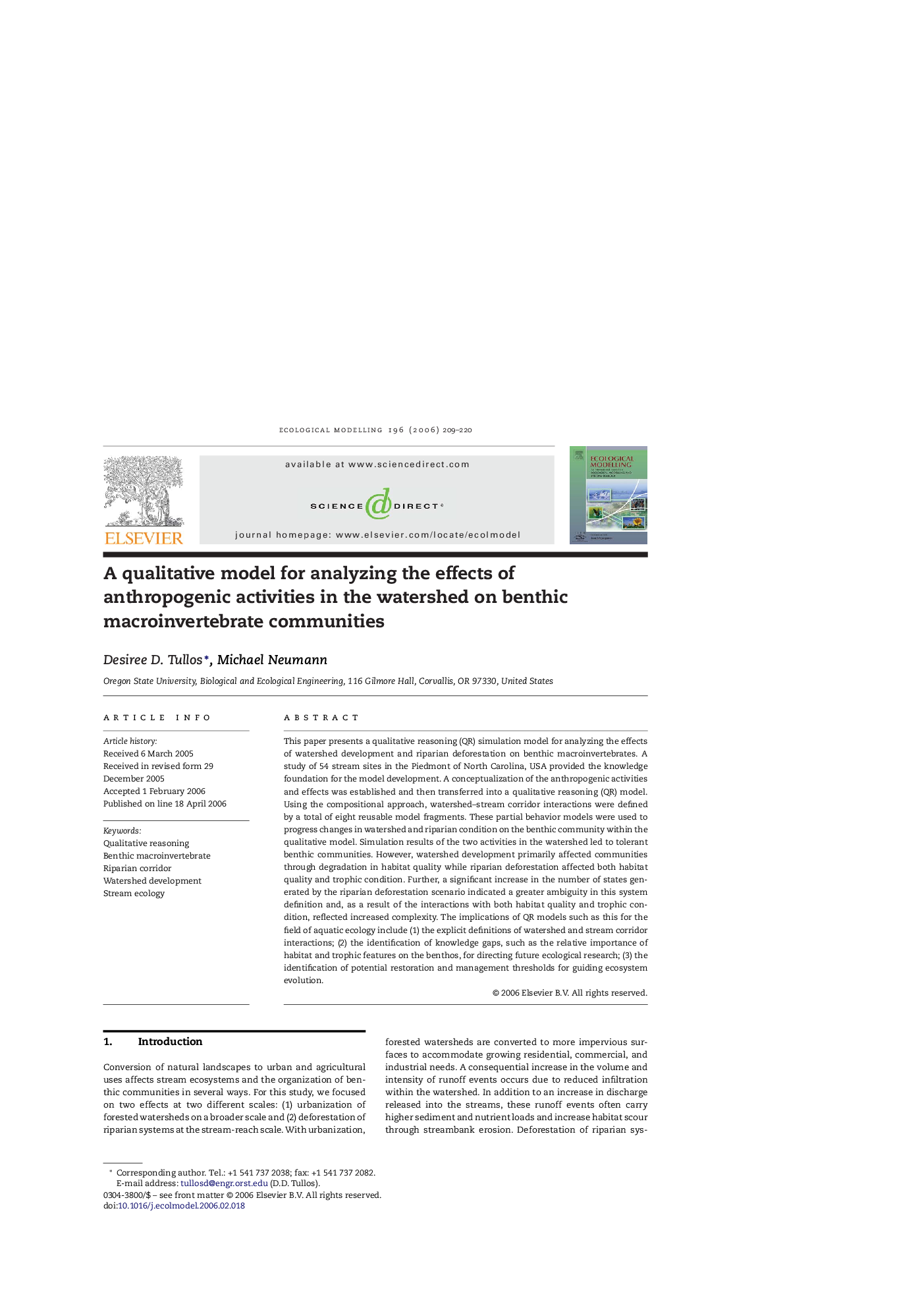| Article ID | Journal | Published Year | Pages | File Type |
|---|---|---|---|---|
| 4379043 | Ecological Modelling | 2006 | 12 Pages |
This paper presents a qualitative reasoning (QR) simulation model for analyzing the effects of watershed development and riparian deforestation on benthic macroinvertebrates. A study of 54 stream sites in the Piedmont of North Carolina, USA provided the knowledge foundation for the model development. A conceptualization of the anthropogenic activities and effects was established and then transferred into a qualitative reasoning (QR) model. Using the compositional approach, watershed–stream corridor interactions were defined by a total of eight reusable model fragments. These partial behavior models were used to progress changes in watershed and riparian condition on the benthic community within the qualitative model. Simulation results of the two activities in the watershed led to tolerant benthic communities. However, watershed development primarily affected communities through degradation in habitat quality while riparian deforestation affected both habitat quality and trophic condition. Further, a significant increase in the number of states generated by the riparian deforestation scenario indicated a greater ambiguity in this system definition and, as a result of the interactions with both habitat quality and trophic condition, reflected increased complexity. The implications of QR models such as this for the field of aquatic ecology include (1) the explicit definitions of watershed and stream corridor interactions; (2) the identification of knowledge gaps, such as the relative importance of habitat and trophic features on the benthos, for directing future ecological research; (3) the identification of potential restoration and management thresholds for guiding ecosystem evolution.
